This lesson is the second in a series on what "to be saved" means in the Bible. The first lesson described what "to be saved" means in the Old Testament (Ref. 1). This lesson describes what "to be saved" means in the New Testament.
This lesson uses scripture quotations from the English Standard Version (ESV) and the New American Standard Bible (NASB) (Ref. 2).
Consider. What do the words, "to be saved," mean to you? How does a person become saved?
1. "To be saved" in the New Testament means "to be delivered out of danger into safety" and "to be made well or whole."
The Greek word, sózó, translated as saved in Acts 16:31 occurs over 100 times in the New Testament (Ref. 3). Sózó (pronounced sode'-zo) means to deliver, heal, make whole, preserve, and save (Ref. 3). When God saves us, God delivers us out of danger into his provisions (safety).
Items "a," "b," "c," and "d" below provide examples from the New Testament for what it means to be saved.
a. Jesus saves people through storms(1). Jesus saved his disciples when they were afraid
Matthew 8:25-26 -- "And they went and woke him, saying, 'Save us, Lord; we are perishing.' 26 And he said to them, 'Why are you afraid, O you of little faith?' Then he rose and rebuked the winds and the sea, and there was a great calm." (Read the entire account: Matthew 8:23-27.)
(2). Jesus saved Peter when he doubted
Matthew 14:30-31, brackets added -- "But when he [Peter] saw the wind, he was afraid, and beginning to sink he cried out, 'Lord, save me.' 31 Jesus immediately reached out his hand and took hold of him, saying to him, 'O you of little faith, why did you doubt?' " (Read the entire account: Matthew 14:22-33.)
Notice in these examples that Jesus saved them even when they had little faith. Let that thought encourage you and calm you in whatever storm you are going through. b. Jesus saves people when they are lost
Luke 19:8-10 -- "And Zacchaeus stood and said to the Lord, 'Behold, Lord, the half of my goods I give to the poor. And if I have defrauded anyone of anything, I restore it fourfold.' 9 And Jesus said to him, 'Today salvation has come to this house, since he also is a son of Abraham. 10 For the Son of Man came to seek and to save the lost.'" (Read the entire account: Luke 19:1-10).
In Luke 19:10, the Greek word for lost, apollumi (ap-ol'-loo-mee), has a more severe meaning than just needing directions to point the way. Apollumi (being lost) implies to die with the implication of ruin and permanent (absolute) destruction by experiencing a miserable end (Ref. 4). Jesus Christ came to save Zaccheus, you, and me from experiencing ruin, permanent destruction, and a miserable end. c. Jesus saves suffering people and makes them well (healed and whole)
The Greek word sózó which means save also means make well, heal, and restore to health (Thayer's Greek Lexicon, Ref. 3). The New Testament strongly teaches the healing nature of being saved.
(1). Jesus healed the woman with a hemorrhage
Mark 5:33-34, brackets added -- "But the woman, knowing what had happened to her, came in fear and trembling and fell down before him and told him the whole truth. 34 And he said to her, 'Daughter, your faith has made you well [saved you]; go in peace, and be healed of your disease.'" (Read the entire account: Mark 5:25-34.)
(2). Jesus healed Bartimaeus from blindness
Mark 10:51-52, brackets added -- "And Jesus said to him, 'What do you want me to do for you?' And the blind man said to him, 'Rabbi, let me recover my sight.' 52 And Jesus said to him, 'Go your way; your faith has made you well [saved you].' And immediately he recovered his sight and followed him on the way." (Read the entire account: Mark 10:46-52.)
(3). Church elders are to pray for the sick to be restored (saved)
James 5:14-15, brackets added -- "Is anyone among you sick? Let him call for the elders of the church, and let them pray over him, anointing him with oil in the name of the Lord. 15 And the prayer of faith will save [restore] the one who is sick, and the Lord will raise him up. And if he has committed sins, he will be forgiven."
When you are suffering and need healing, seek the Lord Jesus Christ in prayer and faith, and trust him for the results.
d. God will save people who call on him from the day of the Lord and from the wrath of God against sin(1). People who call upon the name of the Lord will be saved from the day of the Lord
The prophet Joel describes the day of the Lord in Joel 2:30-32. In Joel 2:31, he describes the day of the Lord as "great and awesome [where awesome means to be feared]" (Ref. 5). Then, Joel adds "And it shall come to pass that everyone who calls on the name of the Lord shall be saved [delivered, escape]" (Joel 2:32, brackets added; Ref. 6). On Pentecost, the Apostle Peter quoted Joel 2:28-32 in Acts 2:17-21.
"Calling on the name of the Lord" means "to adore and worship" the Lord and "to invoke" [petition, appeal to, and make an earnest request to] the Lord in prayer (Ref. 7, Ref. 8). God has promised -- people who call on him (adore, worship, appeal to, and pray to him) will be saved. When you believe in Christ, the time of his return will be a time of salvation, not a time of fear. Thank God and rejoice in that promise. (2). God will save believers in Christ from the wrath of God against sin
Romans 5:8-10 -- "but God shows his love for us in that while we were still sinners, Christ died for us. 9 Since, therefore, we have now been justified by his blood, much more shall we be saved by him from the wrath of God. 10 For if while we were enemies we were reconciled to God by the death of his Son, much more, now that we are reconciled, shall we be saved by his life."
According to HELPS Word-studies, the wrath of God refers to God's fixed, controlled, passionate feeling against sin (Ref. 9). As believers in Christ, we are justified [made righteous] by the blood of Christ (Ref. 10, Romans 5:9). That is why we who believe in Christ will be saved by him from the wrath of God against sin (Romans 5:9-10). 2. Biblical Principles about Being Saveda. God was so moved by his love for the world that he has already provided the way for the world to be saved
John 3:16 -- "For God so loved the world, that he gave his only Son, that whoever believes in him should not perish but have eternal life."
b. God sent his Son not to judge the world, but that the world might be saved through him
John 3:17 -- Jesus said to Nicodemus, "For God did not send the Son into the world to judge the world, but so that the world might be saved through Him." Nicodemus, a Pharisee (John 3:1), may have been expecting a Messiah that would destroy Israel's Gentile enemies (Ellicott's Commentary on John 3:17, Ref. 11). Jesus came at that time not to initiate the final judgment of the world, but to provide the way for the people of the world -- Gentiles and Jews -- to be saved.
c. For those who believe in Christ, God has saved us from our former life of sin
Romans 5:8 -- "But God demonstrates His own love toward us, in that while we were still sinners, Christ died for us."
Ephesians 2:4-5 -- "But God, being rich in mercy, because of the great love with which he loved us, 5 even when we were dead in our trespasses, made us alive together with Christ—by grace you have been saved." d. God has provided his Son, Jesus Christ, as the only way by which people are saved
Acts 4:10,12 -- The Apostle Peter referred to Jesus Christ of Nazareth when he said, "And there is salvation in no one else, for there is no other name under heaven given among men by which we must be saved."
e. Our only "to do" to become saved is to believe in Jesus Christ, God's Son
Acts 16:30-31, brackets added -- "Then he [the Philippian jailer] brought them [Paul and Silas] out and said, 'Sirs, what must I do to be saved?' 31 And they said, 'Believe in the Lord Jesus, and you will be saved, you and your household.'"
The Greek word for believe means trust in, have faith in, and have confidence in (Ref.12). 3. Salvation Prayer
Apply. If you are not yet a believer in Jesus Christ, tell him you are sorry for all the sins in your life (1 John 1:9), and put your faith and trust in him. Tell Jesus that you believe in him and that you believe he died for you (Romans 5:8). Tell Jesus that you believe in your heart that God raised him from the dead (Romans 10:9). Thank Jesus for being your Savior and Lord.
"Everyone who calls on the name of the Lord will be saved" (Romans 10:13).
Related Lessons
"What Does 'To Be Saved' Mean in the Old Testament?" (Psalm 18:3) "God's Offer of Salvation and Eternal Life" (John 3:16) "Faith Comes from Hearing" (Romans 10:17)
References
1. http://www.scriptureway.com/home/what-does-to-be-saved-mean-in-the-old-testament 2. https://www.biblegateway.com/ 3. https://biblehub.com/greek/4982.htm 4. https://biblehub.com/greek/622.htm 5. https://biblehub.com/hebrew/3372.htm 6. https://biblehub.com/hebrew/4422.htm 7. https://biblehub.com/greek/1941.htm 8. https://www.merriam-webster.com/dictionary/invoke 9. https://biblehub.com/greek/3709.htm 10. https://biblehub.com/greek/1344.htm 11. https://biblehub.com/commentaries/ellicott/john/3.htm 12. https://biblehub.com/greek/4100.htm
2 Comments
This lesson explains what "to be saved" means in the Old Testament of the Bible. In the Old Testament "to be saved" means to be delivered by God into safety.
This lesson uses scripture quotations from the English Standard Version (ESV) and the New American Standard Bible (NASB) (Ref. 1) unless noted otherwise.
Consider. What do the words, "to be saved," mean to you in the religious sense?
1. "To be saved" in the Old Testament means "to be delivered"
The Old Testament Hebrew word for saved is yasha, pronounced (yaw-shah'). Yasha means to deliver (Ref. 2). To be saved means to be delivered with the implication of being delivered by God into safety. Strong's Exhaustive Concordance translates yasha as help, preserve, rescue, be safe, and savior (saviour) (Ref. 2). Brown-Driver-Briggs adds the meanings of to make wide, spacious, and liberate (Ref. 2).
Items "a" through "d" below provide examples from the Old Testament for what it means to be saved. a. Delivered by God from all enemies
Psalm 18:3 -- "I call upon the Lord, who is worthy to be praised, and I am saved from my enemies." David wrote this psalm of deliverance early in his reign when God had recently delivered him from the Philistines as well as from Saul (2 Samuel 21:15-2 Samuel 22:4). In Hebrew, the tenses of David's calling upon the Lord and being saved are frequentive (present), describing "David’s habitual experience of God’s readiness to answer prayer" (Ref. 3).
b. Delivered by God from all foes - physical and spiritual(1). Calamities and distresses
1 Samuel 10:19 -- The prophet Samuel said to the Israelite people, "But today you have rejected your God, who saves you from all your calamities and your distresses, and you have said to him, ‘Set a king over us.’ Now therefore present yourselves before the Lord by your tribes and by your thousands."
(2). Troubles
Psalm 34:6 -- David writes, "This poor man cried, and the Lord heard him and saved him out of all his troubles." Note that this verse does not say that as God's people we will have no troubles. This verse says that God hears us and delivers us out of our troubles.
(3). Adversaries
Exodus 14:29-30 -- "But the people of Israel walked on dry ground through the sea, the waters being a wall to them on their right hand and on their left. 30 Thus the Lord saved Israel that day from the hand of the Egyptians, and Israel saw the Egyptians dead on the seashore." God saved the Israelites that day to make his power known -- to them, to succeeding generations, and to us. See Psalm 106:7-12.
2 Chronicles 32:22 -- "So the Lord saved Hezekiah and the inhabitants of Jerusalem from the hand of Sennacherib king of Assyria and from the hand of all his enemies, and he provided for them on every side." (4). Wounds and sicknesses
Jeremiah 17:14 -- The prophet Jeremiah writes, "Heal me, O Lord, and I shall be healed; save me, and I shall be saved, for you are my praise."
The Lord saved (delivered) Hezekiah in two respects - first, from his enemy, Sennacherib (2 Chronicles 32:22), and second, in regard to his health (Isaiah 38:19-20). For background on Hezekiah's illness, prayer, and healing, read Isaiah 38:1-8. (5). Wild animals
Psalm 22:21 -- David writes, "Save me from the mouth of the lion! You have rescued me from the horns of the wild oxen!"
(6). Sin, Idols, and Moral Troubles
Ezekiel 37:23 -- "They shall not defile themselves anymore with their idols and their detestable things, or with any of their transgressions. But I will save them from all the backslidings in which they have sinned, and will cleanse them; and they shall be my people, and I will be their God." The context of this verse is the reunion of Judah and Israel into one kingdom, one nation. See Ezekiel 37:15-22.
2. God invites people to be saved (Old Testament)a. God is our Savior (Saviour). There is no other.
Isaiah 45:21 -- "And there is no other God besides Me, A righteous God and a Savior; There is none except Me."
Compare Isaiah 45:21 with Acts 4:10, 12. b. God invites all the world to turn to him and be saved.
Isaiah 45:22 -- "Turn to me and be saved, all the ends of the earth!"
Becoming saved in the religious sense requires turning away from our false gods and sins and turning towards (by implication, facing) God (Ref. 4). "The direction to look to God for salvation implies a deep conviction of helplessness and of sin; and a deep conviction that he only can save" (Ref. 5). God extends the invitation of salvation to all the world. Compare Isaiah 45:22 with John 3:16. c. God desires to save people despite their (our) sin and rebellion.
Psalm 106:6-8 -- "We have sinned like our fathers, We have gone astray, we have behaved wickedly. 7 Our fathers in Egypt did not understand Your wonders; They did not remember Your abundant kindnesses, But rebelled by the sea, at the Red Sea. 8 Nevertheless He saved them for the sake of His name, So that He might make His power known."
Compare Psalm 106:6-8 with Romans 5:8-9. d. Our response as God's people to being saved is to rejoice and to praise God.
Isaiah 25:9 KJV (italics added) -- "And it shall be said in that day, Lo, this is our God; we have waited for him, and he will save us: this is the Lord; we have waited for him, we will be glad and rejoice in his salvation."
Isaiah 38:20 NIV -- "The Lord will save me, and we will sing with stringed instruments all the days of our lives in the temple of the Lord." Psalm 95:1 -- "Oh come, let us sing to the Lord; let us make a joyful noise to the rock of our salvation!
Apply. Turn to God, and he will save you from your idols and sins. Pray to God, and he will deliver you out of your troubles as he has promised (Psalm 34:6). Rejoice in God your Savior, and praise him for his salvation.
Related Lessons
"God's Offer of Salvation and Eternal Life" (John 3:16) "What Does 'To Be Saved' Mean in the New Testament?" (Acts 16:31)
"But God, being rich in mercy, because of the great love with which he loved us, even when we were dead in our trespasses, made us alive together with Christ—by grace you have been saved." (Ephesians 2:4-5)
God has made believers in Christ alive together with Christ. We identify with the resurrection of Christ, and God gives us a new quality of life -- eternal life.
Consider. If you are a believer in Christ, how would you describe to an inquisitive unbeliever or a new believer what it means to be "made alive together with Christ"?
1. Who is Paul writing to?
Paul begins his letter, "Paul, an apostle of Christ Jesus by the will of God, to the saints who are in Ephesus, and are faithful in Christ Jesus:" (Ephesians 1:1). The Greek word for saints is hagios (hag'-ee-os) which means different or holy. Christians are different from the world because we are like the Lord (Ref. 1). Clearly, Paul is writing to believers in Jesus Christ.
2. What was the former spiritual condition of the Ephesian believers before God made them alive together with Christ?
Paul writes, "And you were dead in the trespasses and sins in which you once walked, following the course of this world ..." (Ephesians 2:1-2). In the same way, without Christ, we were dead in our trespasses and sins. We inherited our spiritual "deadness" from Adam (Genesis 2:16-17, Genesis 3:6). Romans 5:12 says, "When Adam sinned, sin entered the world. Adam’s sin brought death, so death spread to everyone, for everyone sinned" (Romans 5:12 NLT).
Trespasses are a lapse or deviation from the truth, a slip-up, or an error that can be unintentional or willful (Ref. 2). Sins are thoughts, words, or deeds where we miss the mark or target (Ref. 3). 3. Even when we were dead in our trespasses and sins, before we were in Christ, God loved us.
God's divine attributes of mercy and love moved God to plan for and provide for our salvation (Ephesians 1:3-5, Ephesians 2:4-5, Colossians 2:13-14). Romans 5:8 tells us, "But God shows his love for us in that while we were still sinners, Christ died for us." Jesus said about himself, "For God so loved the world, that he gave his only Son, that whoever believes in him should not perish but have eternal life. For God did not send his Son into the world to condemn the world, but in order that the world might be saved through him" (John 3:16-17).
4. Together with Christ, God has made us alive.
Ephesians 2:5 tells us (believers) that God has made us alive together with Christ. In the Greek, the verb does not just say "made alive." It says, "made alive together with" (Ref. 4). Strong's Exhaustive Concordance defines this verb, suzóopoieó (sood-zo-op-oy-eh'-o), as "to reanimate conjointly with, (figuratively) -- quicken together with." As believers in Christ, we identify with and are co-joined with Christ in his resurrection. Paul writes, "If you confess with your mouth that Jesus is Lord and believe in your heart that God raised him from the dead, you will be saved" (Romans 10:9).
5. When God makes us alive together with Christ, God gives us a new quality of life -- eternal life.
When we believe in Jesus Christ and in his resurrection, God makes us alive together with Christ. God gives us a new quality of life -- eternal life (Romans 6:23). Eternal life begins for the believer when they put their faith and trust in Christ, and continues after their physical death (John 11:25-26, Ref. 6).
Being made alive in Christ results in a new quality of life. The Greek word for eternal in eternal life is aiónios, which means perpetual, unending, age-long (Strong's Concordance, Ref. 5, Ref. 6). Aiónios includes the character of that which lasts for an age, as contrasted with that which is brief and fleeting (Ref. 5, Ref. 6). "Aiónios does not focus on the future per se, but rather on the quality of the age it relates to. People who are alive spiritually in Christ live in eternal life right now, experiencing this quality of God's life now as a present possession" (Helps Word-studies, Ref. 5, Ref. 6).
Apply. If you already are a believer in Jesus Christ, praise God that God has made you spiritually alive together with Christ. Thank God for the quality of new life that he has given you in Christ. If you are not yet a believer in Jesus Christ, put your faith and trust in him today. He will forgive your trespasses and sins. He will make you spiritually alive together with himself, and he will give you a new quality of life -- eternal life.
Related Lessons
"What is Eternal Life?" (John 17:3) "Jesus is the Resurrection and the Life (Job's Question, Jesus' Answer)" (Job 14:14, John 11:25-26) "Jesus Christ is the Life - John 14:6" "Jesus is the Way to Heaven" (John 14:6)
References
1. https://biblehub.com/greek/40.htm 2. https://biblehub.com/greek/3900.htm 3. https://biblehub.com/greek/266.htm 4. https://biblehub.com/greek/4806.htm 5. https://biblehub.com/greek/166.htm 6. http://www.scriptureway.com/home/what-is-eternal-life
"For I am not ashamed of the gospel, for it is the power of God for salvation to everyone who believes, to the Jew first and also to the Greek." (Romans 1:16)
This lesson explains the meaning of these phrases from the Apostle Paul in Romans 1:16: "For I am not ashamed of the gospel," "for it is the power of God for salvation to everyone who believes," and "to the Jew first and also to the Greek."
1. "I Am Not Ashamed of the Gospel"
Definitions:
Ashamed -- In Romans 1:16 the Greek word for ashamed is epaischunomai (pronounced ep-ahee-skhoo'-nom-ahee) (Ref. 1 - HELPS Word-studies). This word means to be disgraced, or personally humiliated like someone being "singled out" because they misplaced their confidence or support (Ref. 1). The world thought that Paul should be ashamed. To the Jews, "the thought of a crucified Messiah" was "a revolting folly" (Ref. 2 - Pulpit Commentary on 1 Corinthians 1:18). To the Greeks the worship of a crucified wrongdoer was a detestable superstition (Ref. 2). In contrast with the Jews and Greeks who thought that Paul should be ashamed, Paul in no way felt ashamed of his message about Jesus Christ. Paul did not shrink away from preaching Christ; instead, he glorified in it (Romans 1:15). As believers in Christ -- like Paul -- we should not be ashamed of our Lord and Savior. Likewise, we should not be ashamed to present the good news of salvation in Christ to others. Paul encouraged his protégé, Timothy, "Do not be ashamed of the testimony of our Lord or of me His prisoner, but join with me in suffering for the gospel according to the power of God" (2 Timothy 1:8).
Gospel -- The Greek word for gospel in Romans 1:16 is euaggelion (pronounced yoo-ang-ghel'-ee-on). Euaggelion means God's good news (Ref. 3). At the beginning of Jesus' ministry, the gospel was the glad tidings of the kingdom of God soon to be set up (Mark 1:14-15, Ref. 3 - Thayer's Greek Lexicon). After Jesus' death and resurrection, the gospel was (and still is) the good news that Jesus Christ has paid the penalty for our sin through his sacrificial death on the cross. When we repent of our sins and put our faith and trust in him, we receive forgiveness of our sins and the gift of eternal life. See Mark 1:14-15, Mark 10:45, John 3:16, Romans 5:8, Romans 6:23, Ephesians 2:8-9, and 1 John 1:9.
2. "For It Is the Power of God for Salvation to Everyone Who Believes"
Definitions:
Power -- The Greek word for power in Romans 1:16 is dunamis (pronounced doo'-nam-is). Dunamis means (miraculous) power, might, strength, and ability to perform (Ref. 4). Kenneth S. Wuest adds that "Dunamis is power, natural ability, inherent power residing in a thing by virtue of its nature, or, power which a person or living thing exerts or puts forth. The gospel is the inherent, omnipotent power of God operating in the salvation of a lost soul who accepts it" (Ref. 5 below). The Apostle Paul wrote to believers at Corinth, "For the word of the cross is foolishness to those who are perishing, but to us who are being saved it is the power of God" (1 Corinthians 1:18).
Salvation -- The Greek word for salvation is sótéria (pronounced so-tay-ree'-ah). HELPS Word-studies defines sótéria as "God's rescue which delivers believers out of destruction and into His safety" (Ref. 6).
Salvation is entirely God's doing, not something that we achieve by works or by "trying to live a good life" without Christ. Paul writes, "For by grace you have been saved through faith; and that not of yourselves, it is the gift of God; not as a result of works, so that no one may boast" (Ephesians 2:8-9). Believe -- The Greek word for believe is pisteuó (pronounced pist-yoo'-o). Pisteuó means to believe, to have faith in, to trust in, and to place confidence in (Ref. 7). The person who believes in Christ is a person who has put their faith, trust, and confidence in Christ. The phrase "to everyone who believes" describes the condition, or terms, on which God confers salvation (Ref. 8). God confers salvation on sinners who by faith put their trust and confidence in God's Son, Jesus Christ. 3. "To the Jew First and Also to the Greek"
The phrase "to the Jew first and also to the Greek" means that God then and now offers salvation to all people, to Jews and to all who are not Jews (Ref. 9). God's offer of salvation to all people is consistent with John 3:16, "For God so loved the world, that He gave His only Son, so that everyone who believes in Him will not perish, but have eternal life."
Salvation is the present possession of all people who believe in (have faith, trust, and confidence in) Jesus Christ (Acts 16:30-31, Mark 16:15-16, Acts 8:34-39).
The world thought then (and still thinks now) that Paul's message about Christ was foolishness (1 Corinthians 1:18, Ref. 10). Yet, Paul was neither disgraced nor ashamed of the gospel. Likewise, as believers in Christ, we should never be ashamed of the gospel. The gospel of Jesus Christ is the power of God for salvation to everyone who believes. Jesus Christ, through his sacrificial death on the cross, has procured forgiveness of sins and provides eternal life to all who put their faith and trust in him.
Apply. Show by your words and your deeds that you are not ashamed of the gospel of Jesus Christ.
Related Lessons
"The Word of the Cross - Foolishness or Power?" (1 Corinthians 1:18) "What Does 'To be Saved' Mean in the New Testament?" (Acts 16:31) "God's Offer of Salvation and Eternal Life" (John 3:16) "Stand Firm in the Faith" (1 Corinthians 16:13-14)
References
1. https://biblehub.com/greek/1870.htm 2. https://biblehub.com/commentaries/pulpit/1_corinthians/1.htm (Pulpit Commentary on 1 Corinthians 1:18) 3. https://biblehub.com/greek/2098.htm 4. https://biblehub.com/greek/1411.htm 5. Wuest's Word Studies from the Greek New Testament, Kenneth S. Wuest, Wm. B. Eerdmans Publishing Company, 1973, Volume One, commentary on Romans 1:16 6. https://biblehub.com/greek/4991.htm 7. https://biblehub.com/greek/4100.htm 8. https://biblehub.com/commentaries/barnes/romans/1.htm (Notes on the Bible by Albert Barnes [1834] - Romans 1:16) 9. https://biblehub.com/commentaries/ellicott/romans/1.htm 10. http://www.ScriptureWay.com/home/the-word-of-the-cross-foolishness-or-power
“For God so loved the world, that He gave His only begotten Son, that whoever believes in Him shall not perish, but have eternal life. For God did not send the Son into the world to judge the world, but that the world might be saved through Him." (John 3:16-17)
This lesson is the second in the series on "Christians and the World." This lesson focuses on God's offer of salvation and eternal life to the world through Christ.
Consider. Have you heard of God's offer of salvation and eternal life through his Son Jesus Christ? Have you accepted God's offer?
What is God's Offer?
God offers the world salvation and eternal life through his Son Jesus. John 3:16-17 tells us, "For God so loved the world, that He gave His only begotten Son, that whoever believes in Him shall not perish, but have eternal life. For God did not send the Son into the world to judge the world, but that the world might be saved through Him."
To Whom Does God Make the Offer?
God offers salvation and eternal life to all the people of the world. There are no exclusions. There is no "asterisk." There is no asterisk that says you are excluded from God's offer because you are * (fill in the asterisk). The Apostle Paul wrote that God "desires all people to be saved and to come to the knowledge of the truth" (1 Timothy 2:3-4). God's offer is available to you.
Even though God has made salvation and eternal life available to the world, not all people will be saved. Some people hear God's offer and reject it. Some people have not heard the gospel message; however, they reject what God has revealed to them already through the creation. "That which is known about God is evident within them; for God made it evident to them. For since the creation of the world His invisible attributes, His eternal power and divine nature, have been clearly seen, being understood through what has been made, so that they are without excuse" (Romans 1:19-20). God has promised that all who seek him will find him (Deuteronomy 4:29). Why Does God Make the Offer of Salvation and Eternal Life?
Because God loves the world. God loves all the inhabitants of the world including people who do not know and love Christ and people who are hostile to Christ (John 3:16, Ref. 2).
God sent his Son Jesus because of God's divine love for the world. Even though mankind has sinned against God, disobeyed God, and turned away from God, God still has loved us. The Apostle Paul wrote, "But God demonstrates His own love toward us, in that while we were yet sinners, Christ died for us" (Romans 5:8). John, Jesus' disciple, wrote, "In this is love, not that we loved God, but that He loved us and sent His Son to be the propitiation for our sins" (1 John 4:10). The word, propitiation, means atoning sacrifice (Ref. 3). Why is God's Offer of Salvation and Eternal Life Necessary?
Because through Adam, sin has come into the world and infects all people. Romans 5:12 tells us, "Therefore, just as through one man sin entered into the world, and death through sin, and so death spread to all men, because all sinned." Without the treatment of Christ, the infectious disease of sin is fatal. That is why we need a Savior.
What is the Salvation that God Offers?
John 3:17 tells us, "For God did not send the Son into the world to judge the world, but that the world might be saved through Him." The Greek word for saved in John 3:17 is sózó. Sózó means deliver out of danger and into safety; used principally of God rescuing believers from the penalty and power of sin – and into His provisions (safety) (Ref. 4). Ref. 5 defines salvation as "The deliverance, by the grace of God, from eternal punishment for sin which is granted to those who accept by faith God’s conditions of repentance and faith in the Lord Jesus."
What is the Eternal Life that God Offers?
Eternal life is a free gift of God to those who believe in Jesus Christ (Romans 6:23). Eternal life begins when we put our faith in Jesus. As believers in Christ, eternal life continues with God after our physical death (John 11:25-26). Eternal life is the quality of life that results when we know Jesus Christ by experience, on a first-hand basis (John 17:3). For further information about eternal life, refer to "What is Eternal Life?" (Ref. 6)
What is the Role of Jesus Christ in God's Offer?
God sent His Son Jesus to give his life sacrificially to pay the penalty for our sin. "And according to the Law, one may almost say, all things are cleansed with blood, and without shedding of blood there is no forgiveness" (Hebrews 9:22). By paying the penalty for our sin with his life blood, Jesus has redeemed those who believe in (trust in and have faith in) him. The Apostle Peter wrote, "You were not redeemed with perishable things like silver or gold from your futile way of life inherited from your forefathers, but with precious blood, as of a lamb unblemished and spotless, the blood of Christ" (1 Peter 1:18-19).
God's Offer of Salvation and Eternal Life is Conditional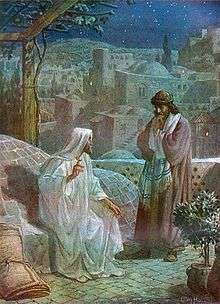 Jesus and Nicodemus (Ref. 7) Jesus and Nicodemus (Ref. 7)
Even though God unconditionally loves the world, there is one condition that God stipulates for mankind to accept his offer of salvation and eternal life - believing in (trusting in, having faith in) his Son Jesus. Jesus said to Nicodemus, "For God so loved the world, that He gave His only begotten Son, that whoever believes in Him shall not perish, but have eternal life" (John 3:16, John 3:1-2).
Is there a Penalty for Rejecting God's Offer?
Yes. The Bible tells us, "For God did not send the Son into the world to judge the world, but that the world might be saved through Him. He who believes in Him is not judged; he who does not believe has been judged already, because he has not believed in the name of the only begotten Son of God" (John 3:17-18). Jesus also stated, "Truly, truly, I say to you, he who hears My word, and believes Him who sent Me, has eternal life, and does not come into judgment, but has passed out of death into life" (John 5:24).
Why is God's Offer the Most Important Offer You Will Ever Receive?
Unlike what the world offers, God's offer of salvation and eternal life results in eternal life-giving benefits when you accept God's offer by believing in Jesus.
Apply. God offers you salvation and eternal life through his Son, Jesus Christ (John 3:16-17). Have you already accepted the most important offer that you will ever receive? If yes, then praise God. If not, will you accept God's offer by thanking Jesus for forgiving your sins and then fully trusting in him by faith today?
Related Lessons
"What Does 'To Be Saved" Mean in the Old Testament?" (Psalm 18:3) "What Does 'To Be Saved' Mean in the New Testament?" (Acts 16:31) "What is Eternal Life?" (John 17:3) "Biblical Definition of the World" (John 1:10)
References
1. Ref.1 begins on the next line https://americanart.si.edu/artwork/study-christ-and-nicodemus-rooftop-23686 2. http://www.ScriptureWay.com/home/biblical-definition-of-the-world 3. https://biblehub.com/greek/2434.htm 4. https://biblehub.com/greek/4982.htm 5. https://www.gotquestions.org/Christian-doctrine-salvation.html 6. http://www.ScriptureWay.com/home/what-is-eternal-life 7. https://en.wikipedia.org/wiki/Nicodemus
Photo source: FreeBibleImages.org
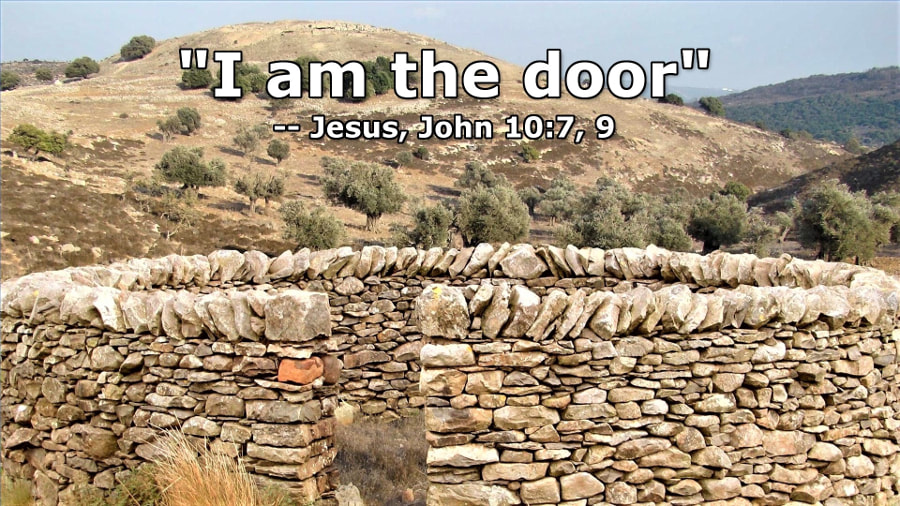
Permanent Sheepfold Enclosure - Holy Land. Photo Copyright David Padfield. Used under license. Permanent sheepfolds were built on the sunny side of valleys where there is protection from cold winds. These had stone walls, 4-5ft high and one entrance guarded by the shepherd. Thorns were often put on the top of walls to deter wild animals. Jesus referred to such a sheepfold and to thieves and robbers climbing over the wall (John 10:1-3).
"So Jesus said to them again, 'Truly, truly, I say to you, I am the door of the sheep.' " (John 10:7, Ref. 1)
"I am the door; if anyone enters through Me, he will be saved, and will go in and out and find pasture." (John 10:9)
"Christ is the Door. And what greater security has the church of God than that the Lord Jesus is between it and all its enemies? ... Here are plain directions how to come into the fold; we must come in by Jesus Christ as the Door." -- Matthew Henry (Ref. 2)
This lesson is the third in a series on the "I AM" statements of Christ. This lesson discusses Jesus' "I am the door" statements in John 10:7 and John 10:9.
Consider. Have you entered into the church of God by believing in the Lord Jesus Christ? Are you experiencing spiritual nourishment in Christ? "If anyone enters through Me" - John 10:9
We enter the sheepfold, the church of God, through Jesus Christ (and only through Jesus Christ). Jesus said, "Truly, truly, I say to you, I am the door of the sheep" (John 10:7). We enter that door when we place our faith and trust in Jesus Christ. "As the only proper way of entering the fold was by the door, so the only way of entering the church of God is by believing on him and obeying his commandments" (Ref. 3).
Jesus said, "I am the way, and the truth, and the life; no one comes to the Father but through Me" (John 14:6). "He will be saved"
Once we have entered the door by faith and trust in Jesus Christ, we are saved. Jesus delivers us from perils such as ravenous wolves and false shepherds (Ref. 4, John 10:1-2). Jesus frees us from the power, guilt, and penalty of sin (Romans 8:1-2, Ephesians 2:1-9). Jesus gives us eternal security. Jesus said, "My sheep hear My voice, and I know them, and they follow Me; and I give eternal life to them, and they will never perish; and no one will snatch them out of My hand" (John 10:27-28).
HELPS Word-Studies defines saved as rescued from destruction and brought into divine safety (Ref. 5). "And will go in and out and find pasture"
To go "in and out" is the common Old Testament expression to denote free activity of daily life (Ref. 6). When Moses charged the Israelites at Mount Gerizim to obey the Lord, he said, "Blessed shall you be when you come in, and blessed shall you be when you go out" (Deuteronomy 28:6, Deuteronomy 27:11-12, Deuteronomy 28:1-2). David wrote about the Lord, the Keeper of Israel (Psalm 121:5). David said, "The Lord will guard your going out and your coming in from this time forth and forever" (Psalm 121:8).
Through Jesus (because he is the door), we have security for our daily needs and nourishment for our souls. Under the care of Jesus, we find pasture - food for our souls (Ref. 7). David wrote, "The Lord is my shepherd; I shall not want. He maketh me to lie down in green pastures: he leadeth me beside the still waters" (Psalm 23:1-2 KJV).
Apply. Have you entered the sheepfold of Christ by believing in him? If not, then put your faith and trust in him today. Are you spending time with Jesus daily to receive spiritual nourishment? How can you improve in this area?
References
1. http://www.ScriptureWay.com/home/when-jesus-said-truly-truly-what-did-he-mean 2. https://biblehub.com/commentaries/mhc/john/10.htm 3. https://biblehub.com/commentaries/barnes/john/10.htm 4. https://biblehub.com/commentaries/pulpit/john/10.htm 5. https://biblehub.com/greek/4982.htm 6. https://biblehub.com/commentaries/egt/john/10.htm 7. https://biblehub.com/commentaries/benson/john/10.htm
"For the word of the cross is foolishness to those who are perishing, but to us who are being saved it is the power of God." (1 Corinthians 1:18)
"Those who receive the gospel, and are enlightened by the Spirit of God, see more of God's wisdom and power in the doctrine of Christ crucified, than in all his other works." -- Matthew Henry (1662-1714) (Ref. 1, Ref. 2)
This lesson describes what the Apostle Paul meant by the phrase, "the word of the cross." God loves us so much that Jesus Christ died on the cross for us, and purchased the forgiveness of our sins. We will also study why for some people, the word of the cross is foolishness and for others, it is the power of God.
Consider. When the Apostle Paul wrote the phrase, "the word of the cross" (1 Corinthians 1:18), what did he mean? In your own words, how would you explain "the word of the cross" to someone else?
Definition of "word." The Greek word for word in 1 Corinthians 1:18 is logos. Logos means something said, a message, reasoning expressed by words, and instruction (Ref. 3). Acts 13:26 and 2 Corinthians 5:19 provide examples where logos is translated as message.
Definition of "cross." The Greek word for cross is staurós. Staurós has both a literal meaning and a figurative meaning. Christ was crucified on a literal Roman cross (Ref. 4). According to HELPS Word-Studies, "Staurós was the crosspiece of a Roman cross; the cross-beam was placed at the top of the vertical member to form a capital 'T' (Ref. 4). "This transverse beam was the one carried by the criminal" (Ref. 4, Matthew 27:31-32, John 19:17). In addition to the shape of a capital "T," researchers also discuss the cross in the shape of a cruciform ("†" or "✚") and as a vertical stake (Ref. 5). Most Christian denominations present the Christian cross in the shape of a cruciform (Ref. 5, Ref. 6).
Staurós also has a figurative meaning. Jesus spoke about the cross each believer bears to be his true follower (Ref. 4, Matthew 10:38, Mark 8:34, Luke 9:23). Thayer's Greek Lexicon describes the figurative cross as an expression used by "those who, on behalf of God's cause, do not hesitate cheerfully and manfully [courageously] to bear persecutions, troubles, distresses — thus recalling the fate of Christ and the spirit in which he encountered it" (Ref. 4, brackets added). What is meant by the expression, "the word of the cross"?
The word, or message, of the cross is that God loves us so much that his Son, Jesus Christ, was crucified and died on the cross for us. Through his sacrifice, Jesus Christ has purchased the forgiveness of our sins. Through Jesus Christ, those who believe in him receive salvation and eternal life.
"But God demonstrates His own love toward us, in that while we were yet sinners, Christ died for us" (Romans 5:8). "For God so loved the world, that He gave His only begotten Son, that whoever believes in Him shall not perish, but have eternal life" (John 3:16). Foolishness to those who are perishing
The Greek word for foolishness is mória. Mória means folly, absurdity, foolishness (Ref. 7). The Greek word for perish is apollumi which means destroy utterly (Ref. 8). HELPS Word-Studies further defines apollumi as "to die, with the implication of ruin and destruction" (Ref. 8).
Why would Paul write that the message of the cross "is foolishness to those who are perishing" in 1 Corinthians 1:18? 1. "To the Jews 'the cross' was the tree of shame and horror; and a crucified person was 'accursed of God' " (Ref. 9, Deuteronomy 21:23). To the Jews, the thought of "a crucified Messiah" seemed "a revolting folly" (Ref. 9). 2. To Paul's Greek audience, the cross was the punishment for slaves and murderers (Ref. 9). The cross meant shame and agony. To the Greeks, worshiping "a crucified malefactor" was superstitious (Ref. 9). 3. Paul explains, "But a natural man does not accept the things of the Spirit of God, for they are foolishness to him; and he cannot understand them, because they are spiritually appraised" (1 Corinthians 2:14). The natural man, who is "not truly enlightened and renewed by the Word and Spirit of God, and therefore has no other way of obtaining knowledge but by his senses and natural understanding … does not understand or apprehend the things of the Spirit of God" (Ref. 10). To us who are being saved it is the power of God
The Greek word for saved is sózó, which means rescued from destruction and brought into divine safety (Ref. 11). The Greek word for power in 1 Corinthians 1:18 is dunamis. Dunamis means (miraculous) power, might, strength (Ref. 12).
The cross is much more than a decoration. "The cross is God's saving power" (Expositor's Greek Testament, Ref. 13). For us who are being saved, the cross is the means by which Jesus has forgiven our sins and rescued us from the path of destruction. By the cross, God offers us the gift of eternal life when we believe in Jesus Christ, God's Son. When we share the "word of the cross" with others, we share not a fable but God's mighty plan for saving people. "For I am not ashamed of the gospel, for it is the power of God for salvation to everyone who believes, to the Jew first and also to the Greek" (Romans 1:16).
Apply. God gives us only two choices. Either we are on the path of perishing or we are on the path of salvation. On which path are you? If you do not know Christ, put your faith in him today, and receive from him forgiveness of your sins and the gift of eternal life. If you do know Christ, thank him for his sacrificial death on the cross to forgive your sins, and for his power working in you each day.
References
1. https://biblehub.com/commentaries/mhc/1_corinthians/1.htm 2. https://en.wikipedia.org/wiki/Matthew_Henry 3. https://biblehub.com/greek/3056.htm 4. https://biblehub.com/greek/4716.htm 5. (Ref. 5 begins on the next line) https://en.wikipedia.org/wiki/Instrument_of_Jesus%27_crucifixion 6. https://en.wikipedia.org/wiki/Christian_cross 7. https://biblehub.com/greek/3472.htm 8. https://biblehub.com/greek/622.htm 9. https://biblehub.com/commentaries/pulpit/1_corinthians/1.htm 10. https://biblehub.com/commentaries/benson/1_corinthians/2.htm 11. https://biblehub.com/greek/4982.htm 12. https://biblehub.com/greek/1411.htm 13. https://biblehub.com/commentaries/egt/1_corinthians/1.htm |
Daily Bible Verse(Click the link above) AuthorMr. Whitney V. Myers. Christian. For more information, please visit the Author Page. Posting ScheduleI plan to provide new postings about once a month. Planned Topics(subject to change) Recent Posts(most recent three months) Popular Posts(top 10) Categories
All
Archives
July 2024
|
|
Copyright 2018-2024 Whitney V. Myers |
Listed in Feedspot's Top 100 Bible Study Blogs and Websites |
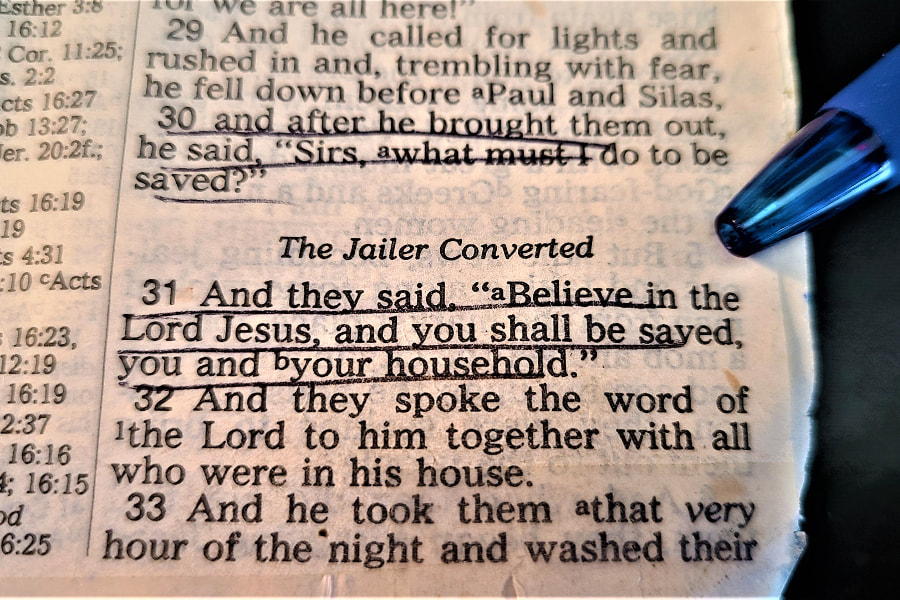
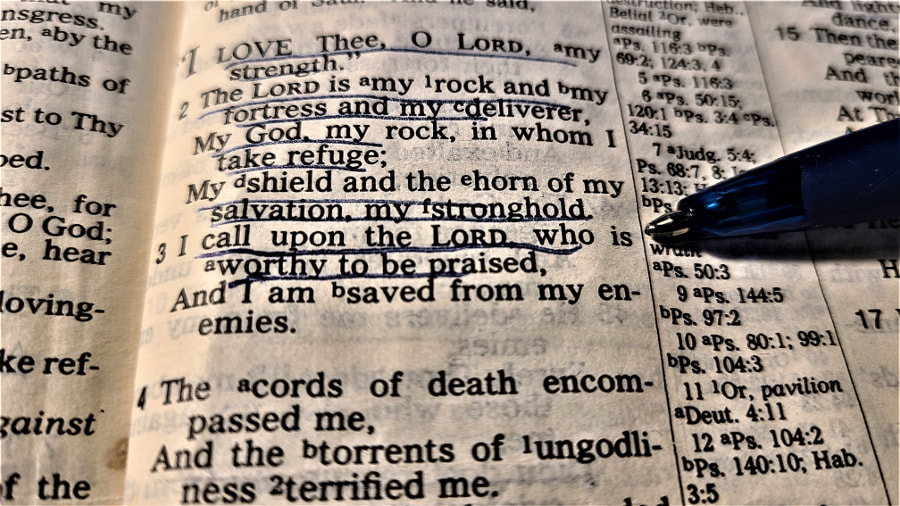

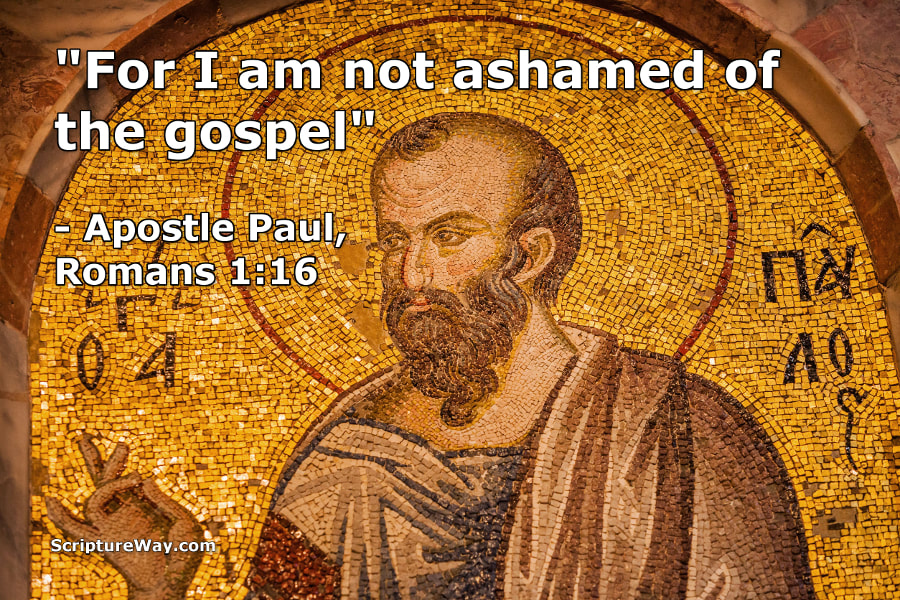
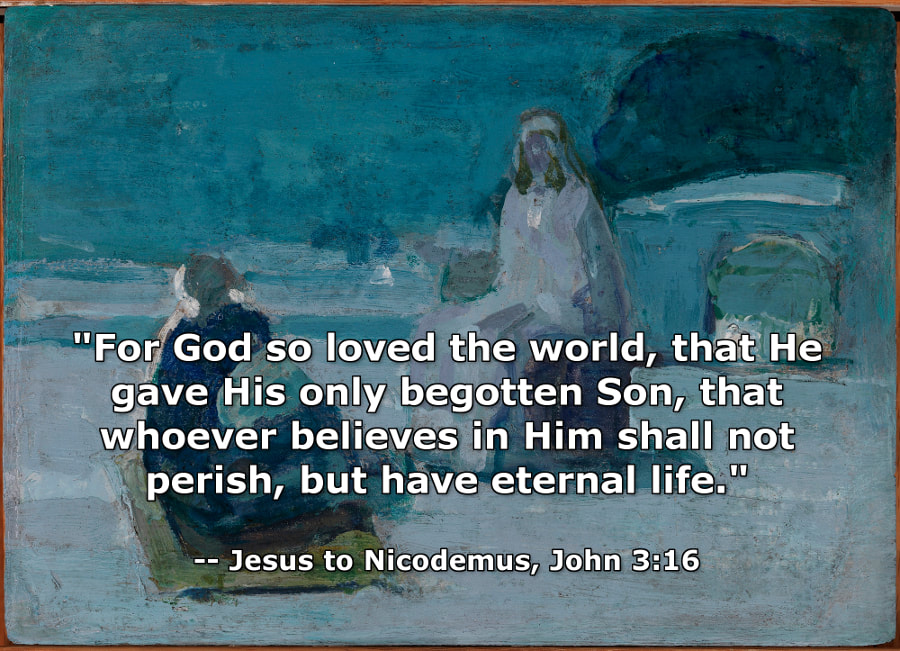
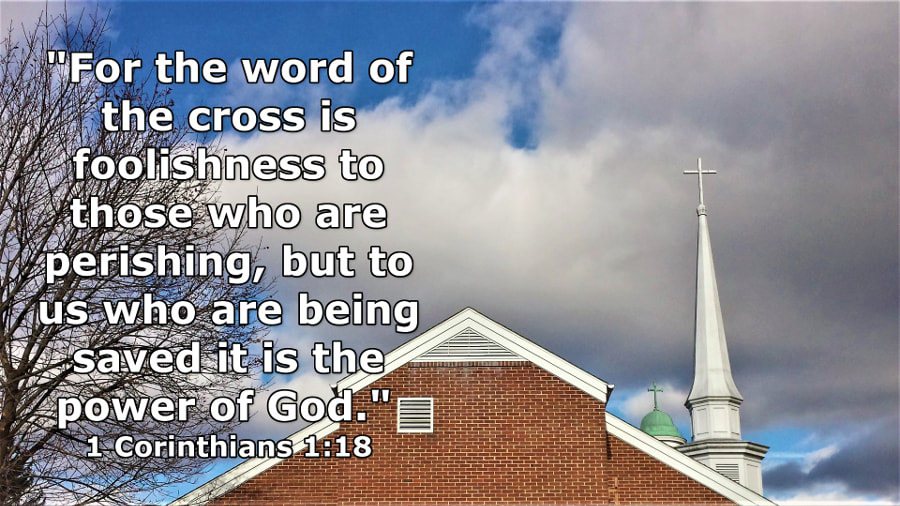
 RSS Feed
RSS Feed
